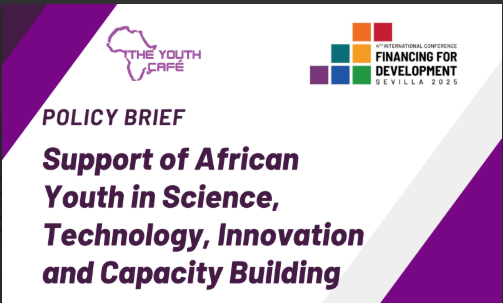Mental Health for All: A Call to Action for Kenya
Kenya is facing a mental health crisis. An estimated 5–10 million Kenyans—10–20 % of the population—live with mental health conditions such as depression, anxiety, substance-use disorders, bipolar disorder, and schizophrenia. Yet mental health services receive less than 0.01 % of the national health budget, far below the World Health Organization’s 5 % recommendation for low-income countries.
This new Policy Brief, produced under the CHOICE Kenya Project with contributions from leading experts and supported by The Youth Café, outlines the urgent steps needed to achieve Sustainable Development Goal 3 (Good Health and Well-Being).
GET THE WHOLE MESAGE
You can get the whole message using the link below:
https://drive.google.com/file/d/1Jtga5x7ZUgQc30gXo5PhsJHvYRyNFGQd/view?usp=drive_link
Key Messages
Integrate Mental Health into Primary Care: Scale up services within community and primary healthcare systems, especially in rural areas.
Invest in Data and Policy: Build robust mental health data systems and fully implement Kenya’s existing mental health policies.
Increase Funding: Raise mental health allocations to at least 5 % of the health budget and expand workforce and infrastructure.
Adopt a Gender Lens: Ensure policies address the distinct needs of women, men, boys, and girls.
Break Stigma: Launch nationwide literacy and anti-stigma campaigns with strong community engagement.
Progress So Far
Kenya has made notable advances:
Primary Care Integration: Training of community health workers and rapid assessment at primary facilities.
Psychologists in Public Service: Recruitment into public health facilities has improved access to counseling.
Awareness Campaigns: Government and civil society efforts have begun reducing stigma.
Capacity Building: Training across sectors, including judiciary and political leadership, reflects growing recognition of mental health.
Ongoing Challenges
Despite progress, major gaps persist:
Severe Underfunding – less than 0.01 % of the health budget.
Limited Access – rural communities face a shortage of services and trained staff.
Stigma and Discrimination – negative attitudes discourage care-seeking.
Weak Data Systems – inadequate tracking hinders evidence-based policy.
Overlooked Gender Issues – women and girls face unique risks from violence and unequal care roles.
Emerging Tech-Related Issues – cyberbullying and online harassment are rising among youth.
Recommendations for Action
The policy brief calls on government, civil society, and development partners to:
Boost Funding – allocate at least 5 % of the health budget to mental health services.
Expand Primary Care Integration – provide resources and guidelines for early detection and treatment at the community level.
Increase Mental Health Literacy – run nationwide anti-stigma and awareness campaigns, using digital platforms to engage youth.
Strengthen Data & Surveillance – build reliable systems to track outcomes and inform policy.
Train Healthcare Workers – invest in mental health training and formally recognize emerging cadres like clinical psychologists.
Implement & Harmonize Policies – fully operationalize the Mental Health Policy (2015–2030) and the Mental Health Amendment Act (2022).
Integrate a Gender Perspective – engage women- and youth-led organizations in designing and implementing services.
Moving Forward
Improving mental health is a public health and human rights imperative. By focusing on the “3 Ps of Mental Health—Promotion, Prevention, and Provision of Care”, Kenya can make transformative progress toward SDG 3 and improve the well-being of its people.
About the CHOICE Kenya Project
Led by Aga Khan University with contributions from mental health, gender, climate, and SDG experts—and supported by The Youth Café—the CHOICE project drives policy advocacy, research, and partnerships to strengthen mental health systems across Kenya.

